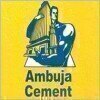Filter interviews by
JK Lakshmi Cement Technical Engineer Interview Questions and Answers
JK Lakshmi Cement Technical Engineer Interview Experiences
2 interviews found
I appeared for an interview before Jun 2024, where I was asked the following questions.
- Q1. Qualification about related fields
- Q2. Work experience about related fields
- Ans.
I have extensive experience in technical engineering, focusing on system design, troubleshooting, and project management.
Worked on a team to design a new HVAC system for a commercial building, improving energy efficiency by 20%.
Led troubleshooting efforts for a manufacturing line, reducing downtime by 15% through effective root cause analysis.
Managed a project to implement a new software tool for engineering calculatio...
I applied via Approached by Company and was interviewed in Feb 2024. There was 1 interview round.
(2 Questions)
- Q1. Cement type and physical properties
- Ans.
Cement types vary based on physical properties such as strength, setting time, and composition.
There are different types of cement such as Portland cement, slag cement, and fly ash cement.
Physical properties include compressive strength, setting time, and fineness.
Composition of cement includes clinker, gypsum, and other additives.
Different types of cement are used for specific applications such as construction, road b...
- Q2. Concrete technology
Top trending discussions






Interview questions from similar companies

I applied via Referral
Interview Questionnaire
1 Question
- Q1. M 20 and m30 Difference ,Target mean strength , density , about working routine
Interview Preparation Tips
And very fast response by hr team, On same day They response me,

I applied via Walk-in and was interviewed before May 2021. There were 2 interview rounds.
(1 Question)
- Q1. Self introduction only
(1 Question)
- Q1. Basic of technical knowledge &:market details
Interview Preparation Tips

I applied via Recruitment Consultant and was interviewed in Oct 2020. There was 1 interview round.
Interview Questionnaire
2 Questions
- Q1. Which product will you recommend customer PPC or PSC to use ?
- Ans.
It depends on the specific needs and requirements of the customer.
Consider the customer's budget and cost-effectiveness of the products.
Evaluate the performance and features of both PPC and PSC.
Assess the customer's technical expertise and support requirements.
Take into account the scalability and future growth plans of the customer.
Consider any specific industry standards or regulations that may influence the choice.
P...
- Q2. What is slag ...
- Ans.
Slag is a byproduct of metal smelting or refining processes, consisting of impurities and non-metallic materials.
Slag is formed during the separation of metal from its ore or during the purification of metal.
It is typically a mixture of various oxides, sulfides, and silicates.
Slag can be used in construction, as a raw material for cement production, or as a road base material.
Examples of slag include blast furnace slag...
Interview Preparation Tips

I appeared for an interview in Apr 2023.

Reasoning and numerical applitude and current affairs
Basick skills of candidates and knowledge of technical
(5 Questions)
- Q1. Slab casting and material testing and material mixing and cement
- Q2. Thickness of slab
- Ans.
The thickness of a slab refers to the distance between the top and bottom surfaces of the slab.
Thickness of a slab is an important factor in determining its strength and load-bearing capacity.
Common thicknesses for concrete slabs range from 4 to 6 inches for residential construction.
Thicker slabs are typically used for heavier loads or in commercial/industrial settings.
The thickness of a slab can vary depending on the ...
- Q3. How many beg are required in 100feet2
- Ans.
To calculate the number of bags required in 100 feet^2, we need to know the coverage area of each bag.
Calculate the coverage area of one bag in square feet
Divide 100 feet^2 by the coverage area of one bag to get the number of bags required
For example, if one bag covers 10 feet^2, then 100 feet^2 would require 10 bags
- Q4. Mix proption..?
- Q5. Thickness of plaster size
- Ans.
The thickness of plaster size depends on the type of plaster being used and the surface it is being applied to.
The thickness of plaster can vary from 5mm to 25mm depending on the type of plaster and the surface being plastered.
For internal walls, a thickness of 12mm to 15mm is commonly used.
For external walls, a thickness of 20mm to 25mm is typically used.
The thickness of plaster may also depend on the number of coats ...

(4 Questions)
- Q1. What is slum test?
- Ans.
Slum test is a method used to assess the quality of concrete by observing the slump of a sample.
Slum test involves filling a cone-shaped mold with concrete, then removing the mold and measuring the amount the concrete slumps.
The amount of slump indicates the workability of the concrete - higher slump means more workable concrete.
Slum test is commonly used in construction to ensure the concrete meets the desired specifi...
- Q2. Types of brick?
- Ans.
Types of bricks include clay bricks, concrete bricks, sand lime bricks, and engineering bricks.
Clay bricks: made from clay and fired in a kiln
Concrete bricks: made from concrete and cured in a controlled environment
Sand lime bricks: made from sand, lime, and fly ash
Engineering bricks: high-strength bricks used in structural applications
- Q3. Test is done to check the workability of cement.
- Q4. Four types of bricks are found.

Technical Engineer Interview Questions & Answers
Dalmia Bharat Cementposted on 12 Feb 2025
(2 Questions)
- Q1. Technical seriveces
- Q2. Site visit andIHBmeet
(1 Question)
- Q1. Site visit and technical service
(1 Question)
- Q1. Technical support

Technical Engineer Interview Questions & Answers
Dalmia Bharat Cementposted on 26 Dec 2023
I applied via Company Website and was interviewed in Nov 2023. There were 4 interview rounds.

(1 Question)
- Q1. Cement Related Questions
(1 Question)
- Q1. Construction Site
(1 Question)
- Q1. HR Decided the employees salary

I applied via Campus Placement and was interviewed in Mar 2021. There were 3 interview rounds.
Interview Questionnaire
1 Question
- Q1. First of all,they asked for introduction,about their company, & then technical questions specially related to cement.
Interview Preparation Tips
JK Lakshmi Cement Interview FAQs
Tell us how to improve this page.
JK Lakshmi Cement Interviews By Designations
- JK Lakshmi Cement Sales Officer Interview Questions
- JK Lakshmi Cement Assistant Manager Interview Questions
- JK Lakshmi Cement Officer Interview Questions
- JK Lakshmi Cement Senior Officer Interview Questions
- JK Lakshmi Cement Sales Representative Interview Questions
- JK Lakshmi Cement Deputy Manager Interview Questions
- JK Lakshmi Cement Management Trainee Interview Questions
- JK Lakshmi Cement Quality Controller Interview Questions
- Show more
Interview Questions for Popular Designations
- Software Engineer Interview Questions
- Senior Software Engineer Interview Questions
- Senior Engineer Interview Questions
- System Engineer Interview Questions
- Team Lead Interview Questions
- Project Engineer Interview Questions
- Technical Lead Interview Questions
- Lead Engineer Interview Questions
- Show more
Overall Interview Experience Rating
based on 2 interview experiences
Difficulty level
Duration
Technical Engineer Interview Questions from Similar Companies
JK Lakshmi Cement Technical Engineer Reviews and Ratings
based on 5 reviews
Rating in categories
|
Assistant Manager
215
salaries
| ₹6 L/yr - ₹15.6 L/yr |
|
Deputy Manager
116
salaries
| ₹8.9 L/yr - ₹18.9 L/yr |
|
Sales Officer
98
salaries
| ₹2.5 L/yr - ₹8.3 L/yr |
|
Senior Officer
85
salaries
| ₹4.5 L/yr - ₹11.2 L/yr |
|
Sales Representative
80
salaries
| ₹2 L/yr - ₹4.5 L/yr |

JK Cement

ACC

Shree Cement

Dalmia Bharat Cement
- Home >
- Interviews >
- JK Lakshmi Cement Interview Questions











